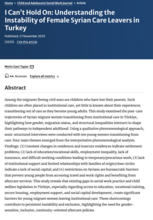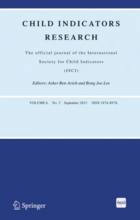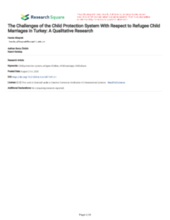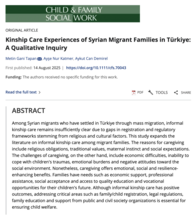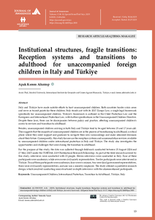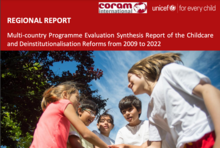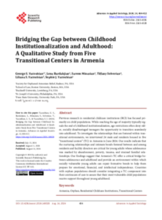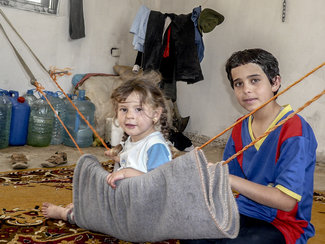

Displaying 1 - 10 of 177
This study explores the experiences of young Syrian migrant women transitioning out of institutional care in Türkiye, revealing how gender, migration status, and structural barriers shape their pathways to adulthood. It finds that gaps in education, employment support, housing, social capital, and aftercare services create persistent instability and exclusion, underscoring the need for more inclusive, gender-sensitive aftercare policies.
This study examined the link between child neglect and family protective factors among 936 parents in Hatay, Türkiye, a region marked by migration, cultural diversity, and economic hardship. Results showed that stronger family protective factors were associated with less neglectful behavior, emphasizing the need for family-centered prevention efforts in disadvantaged, multicultural contexts.
This study examines the challenges faced by child protection professionals in Turkey when addressing refugee child marriage, highlighting issues in identification, assessment, and residential care due to cultural acceptance and systemic weaknesses. The findings emphasize the need for culturally informed, system-wide interventions to better protect at-risk refugee children.
Among Syrian migrants who have settled in Türkiye through mass migration, informal kinship care remains insufficiently clear due to gaps in registration and regulatory frameworks stemming from religious and cultural factors. This study expands the literature on informal kinship care among migrant families.
Italy and Türkiye, both key transit countries for unaccompanied children, have legal frameworks to support them, yet gaps between policy and practice hinder access to services and a smooth transition to adulthood. This study, based on qualitative fieldwork and 23 interviews conducted in both countries, examines reception systems, accommodation services, and the challenges unaccompanied children face during this critical life stage.
This research examined children’s homes, one of the residential child care institutions in Turkey, in terms of spatial aspects, institutional functioning and, child-care staff relations.
This report presents the main findings, conclusions, and recommendations of an evaluation of the child care and deinstitutionalisation reforms in seven countries in the Europe and Central Asia Region (Bulgaria, Georgia, Moldova, Montenegro, Northern Macedonia, Serbia and Tajikistan). The report offers valuable insights into the effectiveness of child protection systems and the transition from institutional care to family- and community-based alternatives. It highlights key achievements, lessons learned, and best practices, while also addressing the areas where further improvements are needed to ensure that every child can grow up in a nurturing, safe, and supportive environment.
Global migration is on the rise, and as a result, millions of children are left in their home countries while their parents migrate abroad. Little is known about the mental health of left-behind children (LBC) in Eastern Europe. The study addresses this research gap in Georgia, a leading migrant-sending country in the region.
This study explores the role that transitional centers in Armenia play in the transitioning process of leaving institutional care and entering independent adulthood.
On 24 July 2024, the Council of Europe project “Protecting the Rights of Armenian Children in Post-Conflict Context” organised a roundtable discussion with a view to support Armenia's efforts in deinstitutionalisation reform and enhance the protection of the rights of unaccompanied and separated children.

